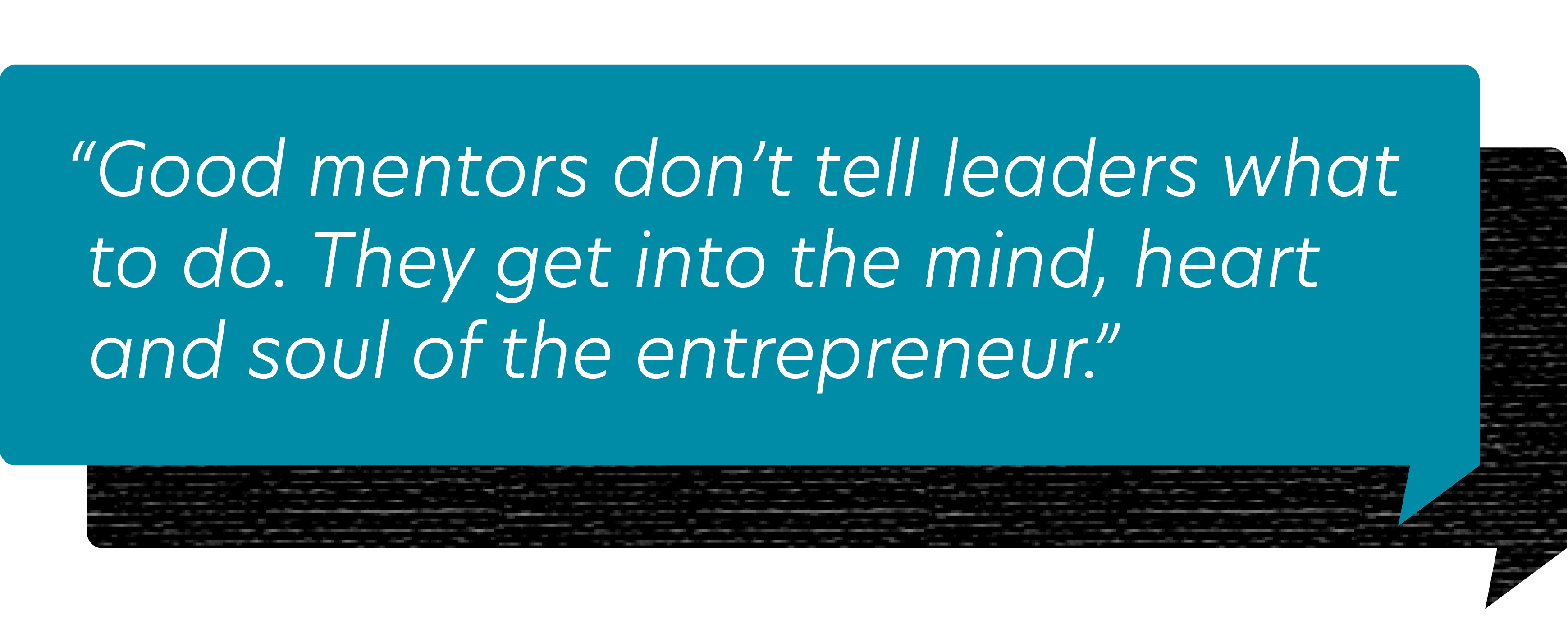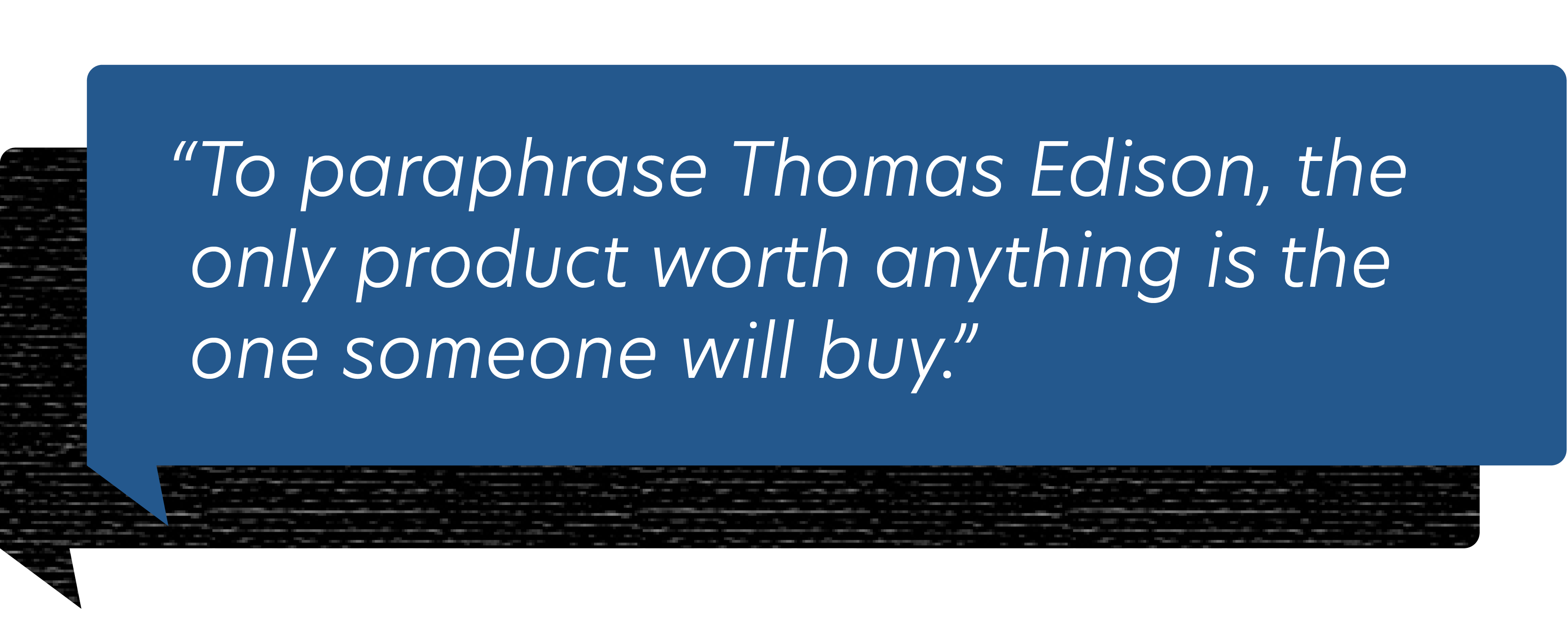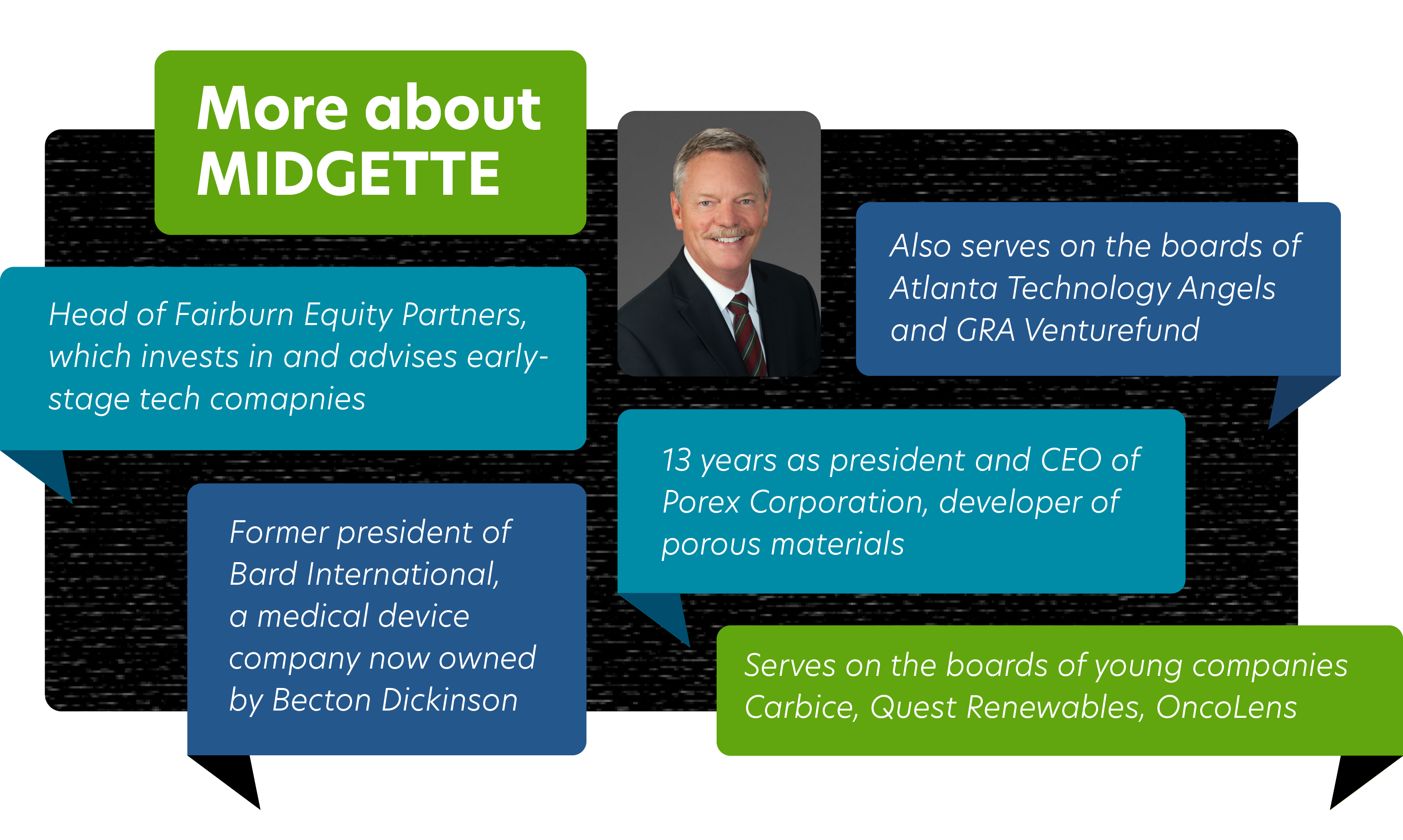

Shortly after Bill Midgette retired as president and CEO of Porex, he became a member of GRA’s corps of senior advisors who guide university startups receiving GRA investment. The counsel of these seasoned mentors is just as important to the success of young companies as GRA’s early-stage investments.
Today, Bill is still advising; he also runs Fairburn Equity Partners, which invests in early-stage tech companies. This month, we asked Bill to reflect on his role helping the leaders of young enterprises grow. He had many good insights to share – so we jotted them down and are passing them on to you.
* * * * *
— I wanted to find something meaningful to do after retiring from Porex. I’m a lousy golfer and a worse fisherman. The value and complexity of GRA inspired me. So I jumped in with both feet.
— Frank Tighe once gave me a tour of ATDC at Georgia Tech. I thought I’d landed in Oz – it had such a hum and a buzz. He would point at doors and say, ‘Let me tell you what’s going on in there.’ It was fabulous.
— We all see finished products sitting on a shelf, but we have no idea what went into those. We see medical treatments and shots in the body, but we don’t really appreciate how inspiring the brilliance behind them is.
— A startup has to offer something that people must have. A new standard of performance for a process or product.

— As an investor in early-stage technology companies, I’ve learned that one thing you can’t put into a term sheet is the founder. If the use of funds reflects how the founder will get to where he/she needs to – well, it’s the use of funds, not the structure of deal, that makes the difference.
— One thing I’ve always believed is: Initiative is admired, but completion is rewarded.
— For time in a room with the great innovators at Georgia’s universities, I would pay 100 times the price I would pay for a ticket to Fox Theater. I loved “Hamilton,” but it doesn’t compare to what some of these entrepreneurs are doing.
— Mentors assigned to companies often say, do this and this and this. But good mentors don’t tell leaders what to do. They get into the mind, heart and soul of the entrepreneur – and they say, here are the things we’ve got to get right.
— When helping leaders of startups, I focus mostly on strategic planning and business development. I don’t know the markets or technology better than they do. But I do know what success looks like when you get there.

— The entrepreneur thinks the mentor is going to answer all the questions. But it’s the mentor who needs to ask the questions. Like, what does success really look like?
— I don’t help founders figure out how to live on mac and cheese. I help them keep an eye on what it takes to make the company work.
— As an investor, I look for people who know where they’re trying to get to. They don’t say I think. They say, I know. That’s vital.
— Being a mentor makes you a better investor.
— Young companies facing big challenges with sales are either selling to the wrong person or don’t truly have a great product. To paraphrase Thomas Edison, the only product worth anything is the one someone will buy.
— There are pacesetters and visionaries. People should pay attention to the visionaries. They change the way we look at things.
— If the leader of a startup is just pursuing money, they’ll crash and burn 999 times out a thousand. Elon Musk and Steve Jobs did what they did out of drive and vision, not money.

— The best leader is the jockey who sleeps on the horse. That leader is all-in. Besides, you always bet on the jockey, not just the horse.
— Focus is one element I wish I’d gotten more advice on. I put a lot of energy and focus into new technology and product development. That’s good, but if you get the ball down to the 20-yard line ten times, you’ve only gained a lot of yards. You’ve got to have focus and clarity to get into the end zone.
— I say a lot of things to company founders that I think is essential. But one point I emphasize is they need to be sure that what they’re doing is the most important thing they’re doing. You have to question why you’re doing it.
— If people turned off cable news and looked at what is going on at GRA, they’d have a much more positive view of the world.